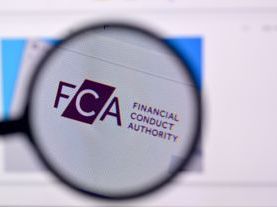The Chancellor has provided clarity on how Benefit in Kind rates will be applied to Plug-in Hybrid vehicles (PHEVs), in the face of uncertainty over how vehicle emissions testing will be conducted. Forming part of ‘L-Day’ (Legislation Day), changes were also announced relating to Employee Car Ownership Schemes (ECOS).
L-Day was when the draft clauses of the Finance Bill 2025-26 were published. This is the legislation needed to bring into effect the changes announced in the Autumn 2024 Budget.
Employee Car Ownership Schemes (ECOS)
Starting from 6 October 2026, vehicles provided to employees for private use through ECOS arrangements will be subject to Income Tax and Employers' National Insurance, in the same way as other company cars.
HM Revenue and Customs (HMRC) has set out qualifying arrangements for the transfer of the ownership of the vehicle to the employee where one or more of the following criteria are met:
- where there are restrictions on the employee’s private use of the vehicle
- where the employee is not the registered keeper of the vehicles
- where, as part of the arrangement, there is a set buyback or onward sale arrangement
- they are of a description specified in regulations made by the Treasury.
Members and/or their customers' who may use ECOS arrangements will need to communicate the change and inform drivers that benefit-in-kind (BiK) will become due from October 2026. The BiK rate is based on CO2 emissions and together with the list price of the vehicle, will determine the income tax liability. For high emitting cars, there could be a substantial cost. Given HM Treasury and HMRC's broad criteria, all ECOS will be in scope.
The change had been due to come into effect sooner but members warned that it will take at least a year to make systems changes. The BVRLA communicated this to HMRC, who have said that the delay was in response to feedback from the association and other stakeholders.
If you have any specific questions about the change that you would like us to ask HMRC, email [email protected].
Income Tax — changes to Employee Car Ownership Schemes - GOV.UK
Treatment of Plug-in Hybrid Electric Vehicles (PHEVs)
L-Day also confirmed that PHEVs will retain their low Benefit-in-Kind (BiK) tax levels, regardless of the outcome of the consultation on their utility factors. There had been uncertainty around how the rates may be impacted – and on which models – if changes were made to the way in which vehicles have their emissions tested.
The address in Parlaiment also provided further, strong recognition of the continued role of the BiK approach in the shift to zero emission motoring: "company cars continue to play an important role supporting our transition towards zero emission vehicles and the decarbonisation of transport."
The BVRLA continues to call for 0% BiK for used BEVs in the Autumn Budget, to open the transition to even more people through salary sacrifice schemes.
Statement – Finance Bill: 2025-26 draft legislation and tax documents




